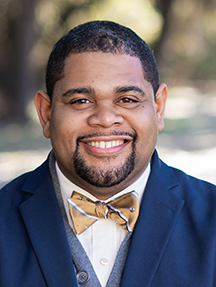By Terrence Wilson, J.D. • Knowledge is Power • February 7, 2023 •
 It is impossible not to notice that attacks on truthful and accurate history have swept the nation, particularly the South, over the last few years. Most recently, Florida leaders made news by seeking to ban implementation of AP African American Studies while AP courses teaching the language and history of the peoples of Europe, Japan, Germany, Italy and Spain are all permitted in Florida.
It is impossible not to notice that attacks on truthful and accurate history have swept the nation, particularly the South, over the last few years. Most recently, Florida leaders made news by seeking to ban implementation of AP African American Studies while AP courses teaching the language and history of the peoples of Europe, Japan, Germany, Italy and Spain are all permitted in Florida.
It is clear that these leaders see a unique danger in allowing students to have an appreciation for the full experience of Black people in America. Nevertheless, those who know Black history understand that the current efforts to whitewash and censor will ultimately fail because the story of Black people in this country is the story of a resilient people who from the beginning refused to be denied an education.
The story of Black people in America is one of a people who demand to learn and have their story told. It is the story of a people who, since being stolen and brough to this country, endeavored to learn despite incredible danger and persecution. In fact, historian James Anderson estimates that by 1860, 5% of enslaved people (over 200,000 individuals) had learned to read.
It is the story of former slaves taking ownership of the educational futures of their children by building their own schools even before the creation of the Freedmen’s Bureau. It is the story of Black educators and administrators across the South who opened so-called “native schools” like the Pioneer School of Freedom in New Orleans in 1860 and the Fortress Monroe School in Virginia in 1861. In fact, John Alvord, appointed Superintendent of Schools for the Freedmen’s Bureau in 1865, estimated that by 1866 there were at least 500 schools established by Black educators and administrators for Black students in operation throughout the South.
It is a story of a people who demanded equal access to education despite Jim Crow laws, threats of violence, and separate and unequal segregated schools. It is the story of a people who continue to demand an education that sustains their culture, treats them with dignity and tells the story of their collective experience.
These leaders do not want students to learn Black history and about the Black experience because they know that having a knowledge of their collective past will sustain their collective future and enable them to continue striving together toward a just educational future.
IDRA recognizes the power, strength and resilience of Black students and their families every day, but particularly so during Black History Month. Over the coming weeks, IDRA staff will publish an updated policy agenda for Black students as well as additional Black History Month reflections from our Black staff members in an effort to celebrate Black students and the rich history of Black people in America.
Resources
Anderson, J.D. (2010). The Education of Blacks in the South, 1860-1935. University of North Carolina Press.
Gutman, H.G. (1976). The Black Family in Slavery and Freedom, 1750-1925. New York: Pantheon Books.


